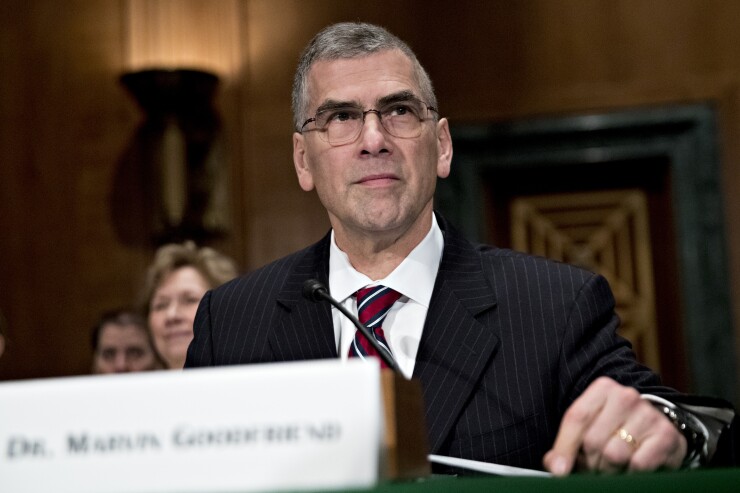Republican gains in the Senate may alter the fate of at least one of President Trump’s nominees for the Federal Reserve.
The Senate has scheduled a Nov. 14 procedural vote on Michelle Bowman, the Kansas State Bank Commissioner, who testified before the Senate Banking Committee in May, and whose nomination was approved by that panel in June. She was not voted on by the full Senate in August when Richard Clarida was confirmed.

“Bowman cleared the Senate Banking Committee by a wide enough margin to assume that her confirmation is just a matter of timing and probably not altered by the midterm results,” according to Gary Pzegeo, head of fixed income at CIBC Private Wealth Management.
The fate of nominee Marvin Goodfriend may be aided by additional Republicans in the Senate, he said.
Goodfriend’s February testimony before the banking panel was contentious and although the panel narrowly approved him, Sen. Rand Paul opposes the nomination. “An expansion of the Senate majority by 2-3 votes probably reduces Paul’s leverage and increases the odds of a Goodfriend confirmation,” Pzegeo said.
Of course, that assumes no action is taken before the session ends and President Trump renominates Goodfriend.
Despite GOP gains, Mickey Levy, managing director at Berenberg Capital markets, said the probability of the Senate confirming “Goodfriend is relatively low. Too bad, he is extraordinary.”
Luke Tilley, chief economist of Wilmington Trust, agreed. “We don’t think the election will have a significant impact on the current Fed nominees and their likelihood for confirmation,” he said. “Clearly there will be some membership changes to the Senate Banking committee,” but “[w]e don’t expect there to be a major shift in the priorities or the tone from either party’s representation on the committee.”
“Marvin Goodfriend has been an influential thought leader in monetary policy for years, and would bring fresh, yet unconventional, thinking to the Boardroom, something he has been doing in academic circles for years,” Tilley added.
Former Federal Reserve economist Nellie Liang is the final nominee, chosen by Trump in September. Some Republicans including Pat Toomey of Pennsylvania and Thom Tillis of North Carolina have raised concerns about her opinions on financial regulation.
“Nellie Liang is an insider who may draw some hard questioning for her years at the Fed and any work she did that is under scrutiny by both parties,” according to Tilley. “That has not changed as a result of the election.”





